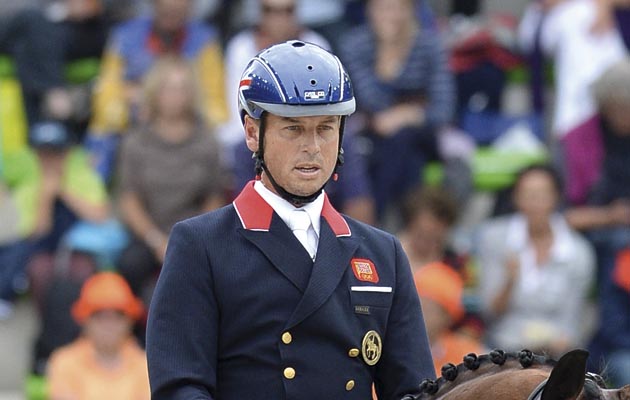Attending the Team GB athlete briefing at Bisham Abbey, one of Sport England’s national sports centres, brought Olympic reality upon us. Time is running out! The major difference between other championships and the Olympics is that, for the Olympics, you are no longer just a member of your own sport’s team, but part of Team GB. It’s an entirely different concept. Pride, unity, responsibility and respect are the equals of performance.
Talks were laid on by some high flyers of the British Olympic Association. Having seen the maps and plans for all the venues we found that the road from the Olympic village to the equestrian venue, which requires blowing a socking great hole through a mountain, is due for completion by 31 July, when the Olympics start at the beginning of August. It caused my mind to boggle.
Following talks on human and horse health, I concluded that the only safe place to eat in Rio will be the Olympic village. Mayonnaise (one of my favourites) should be avoided as should some fish, particularly red snapper and sea bass, as it can be contaminated. So that’s the end of restaurants for us!
After all this talk of the importance of heathy eating we went to lunch, which rather oddly comprised sandwiches, onion bhajis, crisps and flapjacks, which of course went down a treat.
The afternoon’s programme included a 90-minute talk on clean sport, stressing how easy it can be to slip down the wrong path to dope testing. All kinds of products, from cold and flu remedies to types of vitamins, could end your chances and more importantly, those of your team. Take a look at www.globaldro.com — it’ll make your eyes pop out on stalks.
Another important factor to watch out for is social media, which has become such a huge factor, even since London 2012. It used to be that if you don’t want your mother to see it, don’t tweet it. Now it’s more like if you don’t want your granny to see it, don’t tweet it, in as far as how much social media become part of everyone’s daily lives.
The final motivational talk was from James Kerr, author of the book Legacy in which he unravels the success story of New Zealand’s legendary All Blacks, one of if not the most successful team on earth. The message was that exceptional success requires exceptional circumstances, or that “higher purpose leads to higher performance”.
Team culture is a key driver of success, so come on Team GBR, let’s get practising the haka.
Good deeds
Over lunch we played a little game to see who should win a prize for doing something for others. Alice Oppenheimer had taken her mother to Norway for her 60th birthday. Spencer Wilton’s nomination was for helping an elderly neighbour take down a tree. Anna Ross spent valuable minutes in the hairdressers showing how an argument on Facebook can be flawed — when pictures of top horses and riders are used for comparison against the ‘golden oldies’, which are so regularly trotted out as the ideal. Anna’s examination of video footage proved that a moment in time proves nothing at all.
Our good deed of the month prize, however, has to go to Fiona Bigwood. A vegetarian, she bought two live lobsters out of a tank in a restaurant, then gleefully released them into the sea. Good for you Fiona!
Ref: Horse & Hound; 10 March 2016

